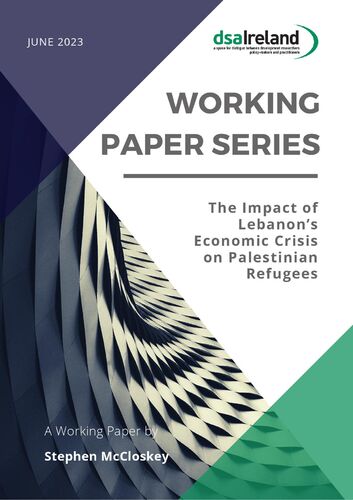By Stephen McCloskey
Abstract
This report assesses the impact ofLebanon’s current economic crisis on the socio-economic status of 180,000 Palestinian refugees living in the country. Since 2019, Lebanon’s economy has been locked in a prolonged crisis triggered by a debt default that has seen the currency lose 98 per cent of its value and inflation rocket to 200 per cent. This has caused a surge in the prices of daily necessities such as food, domestic fuel and transportation. Palestinians have been on the frontline of this economic crisis. Displaced from their homeland since 1948, Palestinian refugees in Lebanon have never been naturalized, are excluded from 39 syndicated occupations and denied property rights. Their marginal status has been exacerbated by the arrival of 29,000 Palestinian Refugees from Syria (PRS) who have fled the civil war in Syria. This has created a race to the bottom in terms of competition for low paying jobs in the informal sector. Palestinians have also been severely impacted by the COVID-19 pandemic, and their health, education and living conditions are deteriorating as a consequence of Lebanon’s economic meltdown.
The report is based on three field visits to nine Palestinian camps in Lebanon in 2022 and the latest research by UN agencies working in the country.
